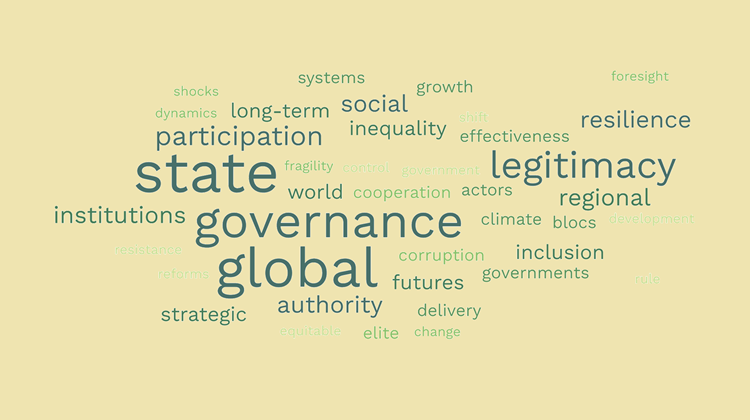A continent at a digital crossroads

Africa must rapidly move towards digitising manufacturing, or miss out on the regional and global value chains of the future.
Digitisation creates opportunities for financial inclusion, transparency in public services, and digital commerce. It also creates new opportunities in health, education and agriculture.
But Africa lags behind the rest of the world in nearly every digital-related indicator except mobile money. In particular, it’s not moving quickly enough on innovation and digitalisation in industry and manufacturing to spur economic transformation. There are great examples of African companies using 3D printing or machine learning or drones, but these mostly represent Africa’s aspirations – not its reality.
Even where there is progress, African countries are benefiting less from new technology and innovation because of low absorptive capacity and a lagging digital infrastructure. The average internet penetration in Sub-Saharan Africa is 25%, which is half the global average, and the impact of doubling internet penetration on manufacturing labour productivity is also significantly lower in these countries.
Digitalisation can open up new opportunities within manufacturing. These include increases in efficiency, diversification into more value-added products, expansion in regional and global trade, lower production costs, optimising supply chains, and increases in export competitiveness.
But for these opportunities to become realities, governments must incentivise innovation in industry and manufacturing, while providing an appropriate business environment for the private sector.
The African Center for Economic Transformation (ACET) recently undertook a landscape analysis of seven countries to better understand where industrial innovation policies are in place to support the sector. The analysis found that the private sector has made limited investments in innovation sectors, digital, and Fourth Industrial Revolution technologies. Similarly, governments are doing little to promote smart technology and incentivise industrial innovation policy.
The research found that the biggest challenge to building an industrial innovation ecosystem in the countries reviewed (Côte d’Ivoire, Ethiopia, Ghana, Morocco, Senegal, Togo and Tunisia) was the lack of substantive engagement with the private sector.
Having policies and a conducive macro-economic framework is an enabler, but isn’t enough to drive industrial innovation. Governments are drafting policies but are not sufficiently engaged with the industries, tech hubs, and start-ups. Besides Tunisia and Morocco (where gaps do remain), there is little engagement at a strategic level with the private sector.
In the conceptual and design stages of digital industrial hubs, development practitioners will need to account for the multifaceted nature of the digital divide to avoid exacerbating existing inequalities.
Research conducted by the Institute of Development Studies in 2021 shows that digitisation projects, such as digital industrial hubs, need to be implemented in partnership with local tech providers. These providers can offer maintenance, repair services and troubleshooting services for digital hardware and software. This will require building local tech capacity and facilitating links with local tech providers.
Moreover, political economy thinking needs to be embedded into the design of digital industrial hubs. This will help us understand how structural factors shape the uptake of these hubs, and the actors involved in (or excluded from) the framing and design of such initiatives. It will also shed light on the formal and informal ‘rules of the game’ (how social, cultural and gender norms will affect the adoption of digital hubs).
For example, a study by the World Trade Organization (WTO) and World Bank in 2020 showed that smaller firms with female CEOs suffered the most from inefficiencies in IT connectivity and infrastructure, and digital regulations.
Regionally, there are significant opportunities for countries to prepare for an acceleration of investment in digital industrial hubs. For example, the e-commerce protocols in the African Continental Free Trade Area agreement are being negotiated by the African Union (AU).
Also, global tech giants such as Google and Microsoft are making large investments on the continent. And bilateral and multilateral efforts such as the European Union-AU digital partnership and the G20 Compact with Africa are facilitating investment and greater cooperation.
There is much debate about the impact of digitisation on employment. But it’s clear that a key roadblock to large-scale employment generation is a lack of domestic integration between the local manufacturing sector in African countries and the domestic technology sector.
In many developing countries, manufacturing firms import digital solutions due to a lack of awareness and trust in domestic tech solutions. Actively promoting and scaling up local production in Africa for job creation will require an increased focus on domestic integration. This must link global productive firms with potential local suppliers and domestic labour, and domestic digital start-ups and small and medium enterprises (SMEs) with existing manufacturing supply chains.
ACET’s Business Transform (ABT) – the centre’s business incubator for start-ups – is working with early- to growth-stage SMEs that have a manufacturing or assembly component in their business model to integrate them into regional markets and the global value chains of large multinationals. The programme provides free technical and managerial services, financial support and transaction advisory services.
But ACET finds that even firms that invest in technology often operate by responding to market trends that present opportunities, rather than having a strategy to scale and enter value chains.
Digitisation provides opportunities for expanding Africa’s manufacturing value addition, but this requires incentivising industrial innovation policy. Likewise, regional and global efforts can further support the evolution to digital industrial hubs. But greater domestic integration and accelerated efforts to support companies entering regional and global value chains are needed.
Creating well-integrated digital industrial hubs with appropriate supporting policies can help African firms create economies of scale, create demand domestically and regionally, and create jobs. Digital innovation hubs can act as pockets of digital infrastructure and skills, while helping inform digital industrial policies. This in turn can attract investment, both local and foreign, with the potential to nurture regional hubs and provide access to regional value chains.
More work is needed to understand the potential of digital industrial hubs in different country contexts, sectors and policy environments. There’s too little information on the structural integration between the manufacturing sector and the domestic technology sector, and the bottlenecks that occur in this process.
Relatedly there is a need for initiatives and programmes to help digital start-ups to integrate into manufacturing value chains through digital services and e-commerce.
For this to be successful, digital infrastructure deficiencies and policy gaps related to intellectual property, data protection and privacy must be addressed by African governments. Digital industrialisation roadmaps at the domestic level need to be developed to target female workers and entrepreneurs, enabling them to move into higher value segments of the digital value chain.
As fissures in the global economy continue, now is the time for African governments and companies to prepare for an economic rebound represented by an increasingly digitised industrial base, and new regional and global value chains. Digital industrial hubs will be central to the continent’s economic transformation, and hence poverty reduction and equitable growth.
Rob Floyd, Karishma Banga and Freda Yawson
The African Center for Economic Transformation is a pan-African economic policy institute based in Accra, Ghana. ACET undertakes analysis and research related to Africa’s economic transformation and provides advisory services to African governments. Its innovation and digital policy practice has programmes on innovation ecosystems, strategies and frameworks, digital infrastructure and skills for the Fourth Industrial Revolution.







